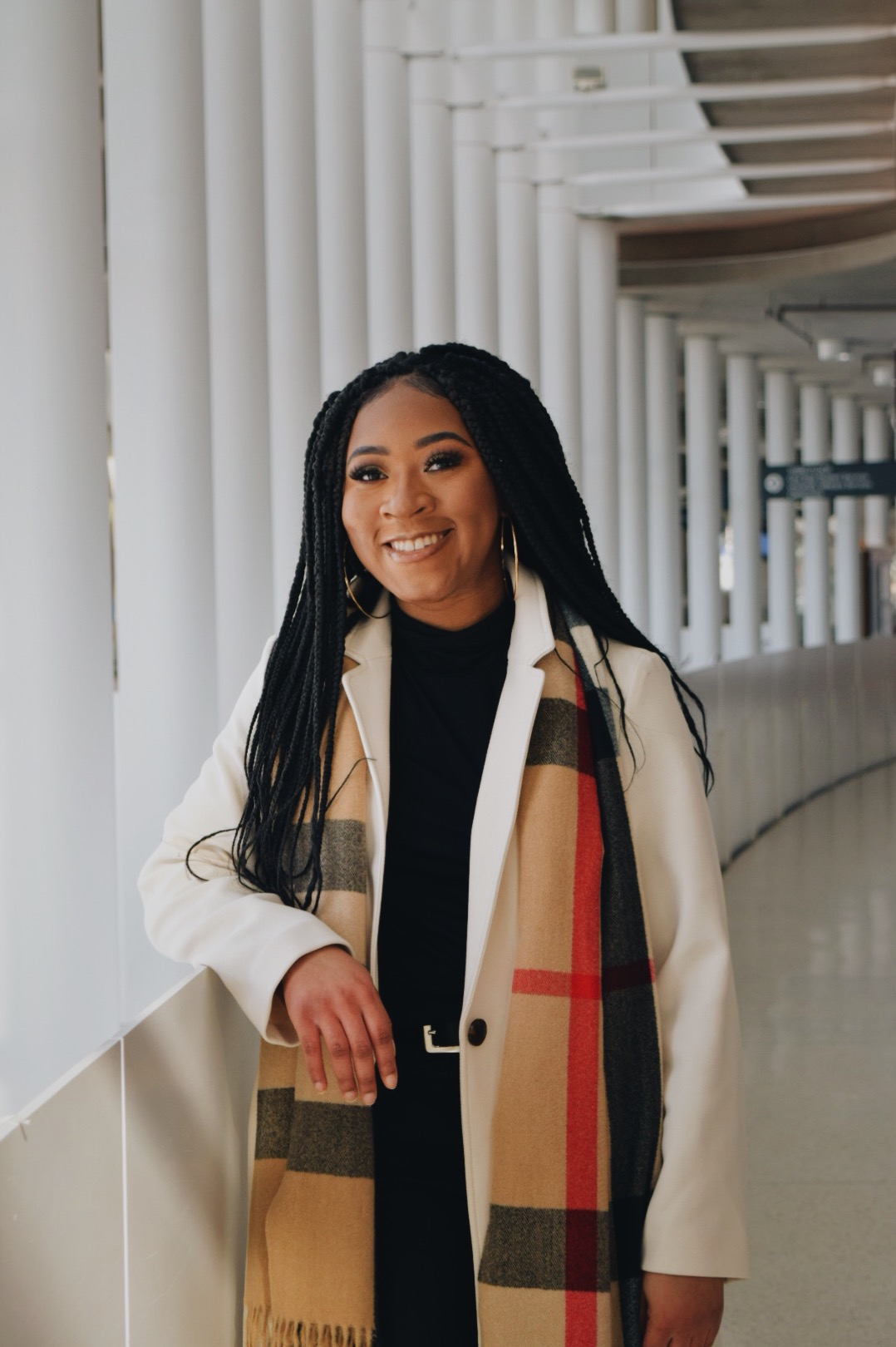The Black Student Union president seeks change during a season of crisis.
By Donna Baeck
Samiat Ajibola had just been elected president of the Black Student Union at the University of Minnesota when the protests against racial injustice began, sparked by George Floyd’s death in May.
She went into quick action day after day, going on grocery runs, participating in community-clean ups at Lake Street, representing Black students to the University administration, advancing the agenda of change for her board, worrying about students staying safe during protests held during a deadly pandemic.
As she looks back today, she can only describe it as unrelenting pressure day and night that left her oblivious to her own needs.
“We had to hit the ground running right after we were elected and never had time to take care of ourselves,” Ajibola said. “I felt numb. I never had the chance to grieve with my community because I felt like I had to act fast.”
To those who worked with her, Ajibola has been an inspiration who has only grown more adept as a leader from the challenges she has faced.
“She [adapted to the pressure] with grace and strength,” said Najmo Yusuf, a student life adviser at the Office of Multicultural Student Engagement, who works alongside student group leaders like Ajibola at the University. “She established a good relationship with the other BSU board members so they can best serve the greater community … She’s making sure students are being heard and have a place to turn to even if it’s virtual.”
Ajibola has not slowed down in her work on behalf of students. A third-year student from Brooklyn Park, Minn. pursuing a degree in sociology with an emphasis in policy analysis and a minor in public health, Ajibola is also the liaison between the African Student Association and the Minnesota Student Association, an ambassador for the Undergraduate Health Association and a representative for the Boynton Health Committee.
She has also just been elected vice president of the Minnesota Student Association. She is now stepping into office at a new time of upheaval with protests over the police killing of Daunte Wright.
She admits juggling several leadership positions and academics can be exhausting, especially during an online school year. She realized she was not taking the self-care advice BSU was sharing with its members during the protests and was struggling to make time for herself.
Now she leans into the support of her family and friends and has begun journaling and painting when she feels as if she is not listening to her needs. This kind of self-care was difficult for her to embrace as a person from a Black community, where stigma around mental health issues often exists, she said.
Ajibola discovered BSU after she visited the organization in high school and connected with the president and vice president. She was inspired to run for the marketing chair position on the board after her first year when she had a hard time connecting with other members in the BSU room on the second floor of Memorial Union. She said she wanted to make the room a more welcoming environment for students.
Shortly after, she became the president after the previous president abruptly stepped down. She was afraid people would think she did not deserve the position because of how quickly she entered the role.
“Black women in any leadership position they’re in feel like they don’t belong there, but I realized I do actually belong here,” Ajibola said.
Ajibola has leaned in with initiatives to make a difference. When the pandemic forced the University to move to virtual learning, Ajibola and her fellow board members noticed many Black students were dropping out because of financial barriers.
Ajibola and her fellow board members created the BSU Scholarship Fund to help provide relief for Black students at the University who were struggling to afford the cost of attendance. They also created a financial literacy series, self-care events, internships for general members and fundraisers for the community.
“Everyone needs a safe space and we didn’t want that space to be neglected by COVID. The least we can do is create a virtual space and be able to talk to administration and counselors to make this university better,“ Ajibola said.
Ajibola also hopes BSU will be a pipeline success for future students. She wants Black middle school and high school students to be aware that BSU is at the University and that there is a community for them. Her vision is for BSU to provide connections for volunteer opportunities, internships and future employers and help students leave the University prepared for success.
She hopes she can bring more opportunities for cultural and advocacy groups on campus.
“It’s sad I won’t be a part of the ending results for BSU. But I’m proud to say I was there during the conversations that started it all,” Ajibola said.

